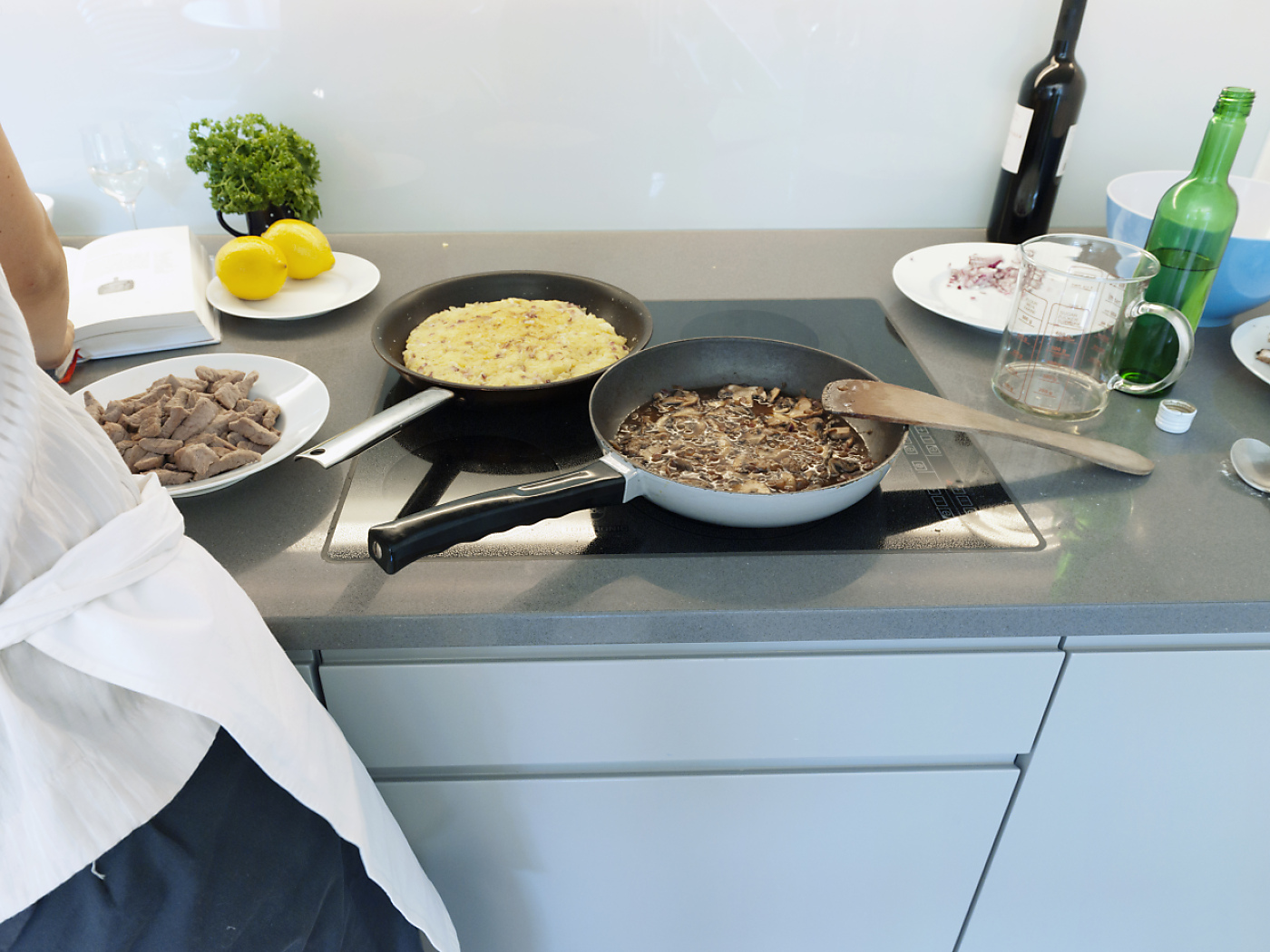
Study reveals food culture differences between Switzerland and neighbours

Three-quarters of Swiss people consider eating to be a pleasurable, social activity, a new survey shows. Healthy eating, however, plays a much less important role, it found.
+ Get the most important news from Switzerland in your inbox
Just under half (48%) of the 2,100 people who took part in the Gottlieb Duttweiler Institute (GDI) survey said they paid attention to the balance of nutrients on their plate when eating. And only a third (35%) think about the long-term effects of food on their health when eating, the survey reported on Monday.
For around three-quarters of those surveyed, eating together is the best opportunity to spend time with friends. In all, 68% said they like to take time to enjoy a meal. Family and/or regional roots played a major role for around half of those surveyed. Over half of people said they usually cook at home and almost half said that their personal eating habits were strongly influenced by their origins.
Comparison with neighbours
The survey also compared the situation in Switzerland and the border regions of Germany (Baden-Württemberg/Bavaria), Austria (Vorarlberg), France (Franche-Comté/Rhône-Alpes) and Italy (Lombardy).
+ More people giving up meat in Switzerland
Although community is the most important factor in food culture everywhere, it is rated highest in Switzerland and lowest in southern Germany. In Switzerland, interpersonal interactions seem to be more important when eating than in Bavaria or Baden-Württemberg.
Of all the regions examined, Lombardy in northern Italy places the greatest value on regional traditions and family recipes. This region is also by far the most concerned with weight. In Vorarlberg, Austria, on the other hand, people are least likely to restrict themselves when eating and count calories. Switzerland and the French border regions each occupy a middle position.
+ New Swiss food regulations for 2024: bread, chemicals and food waste
Otherwise, 92% of respondents said their eating habits had changed over past ten years for the following reasons: new information (4%), weight control (45%), health concerns and financial reasons (32% each).
For around two-thirds of respondents, family, partners or roommates have a major influence on eating behaviour. In second and third place came the availability of food (56%) and its price (51%).
Young people influenced by social media
Only 12% of those surveyed said that traditional media played a major role in their food choices – and only 11% said that social media played a major role.
However, there were major differences between age groups when it came to social media. While 71% of over-60s said they were not influenced by social media at all, around half of under-30s believe social media at least partially shapes their eating habits. A quarter even spoke of a rather to very large influence.
Translated from German by DeepL/sb
This news story has been written and carefully fact-checked by an external editorial team. At SWI swissinfo.ch we select the most relevant news for an international audience and use automatic translation tools such as DeepL to translate it into English. Providing you with automatically translated news gives us the time to write more in-depth articles.
If you want to know more about how we work, have a look here, if you want to learn more about how we use technology, click here, and if you have feedback on this news story please write to english@swissinfo.ch.

In compliance with the JTI standards
More: SWI swissinfo.ch certified by the Journalism Trust Initiative






























You can find an overview of ongoing debates with our journalists here . Please join us!
If you want to start a conversation about a topic raised in this article or want to report factual errors, email us at english@swissinfo.ch.